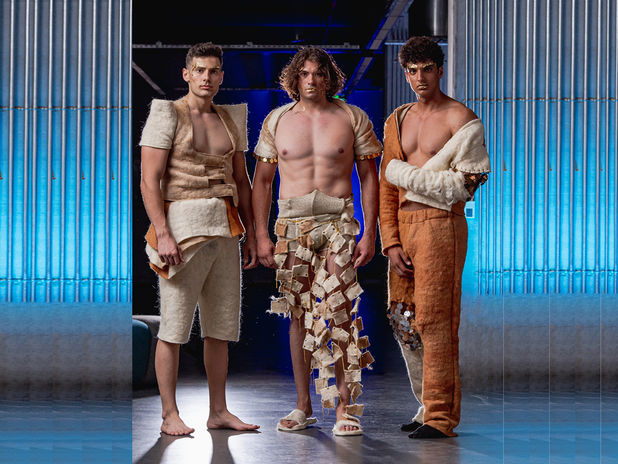fashion design studio | graduation collection | course content and project coordination
izmir university of economics | faculty of fine arts & design | dept. of fashion & textile design
project
collaboration
YESIM
textile
2020/21 fashion and sustainability
The textile industry is an important sector in the Turkish economy, including some suppliers of fair fashion in Europe.
The growing European awareness of fair textile production is still underrepresented in Turkey.
There is a lack of information and convincing examples that sustainable production can also be economically attractive.
In this context, Yesim Textile, as a future-oriented and innovative company, offered a joint project with the IUE department for textile and fashion design.
The class of 2021 outlined individual concepts for sustainable fashion collections taking into account one or more of these categories:
-
zero waste - conserving resources by „producing" less to zero waste
-
convertible fashions - reduction of consumption through diverse looks in one piece of clothing
-
circular fashion - reuse of resources
-
Ecological - 100% biodegradable and animal-friendly fibers (such as peace silk)
-
slow fashion - focus on local productions in appropriate quantities and thus reducing the carbon footprint
Based on a thorough analysis of the harmful effects of fast fashion, the students created a conceptual outline that resulted in a mini capsule collection of 12 looks that addressed the negative aspects of the sector.
They were free to come up with a suggestion for a concept to be implemented in ready-to-wear, or an experimental approach that gives a creative outline to be further developed to meet the needs of the industry.
Regardless of which approach they chose, at the end of this project each student managed to produce three physical prototypes out of their 12-piece-collection and an editorial photo shoot.
The goal of this project is that students in their professional future should naturally consider sustainable production methods into their designs and be able to adapt to this emerging fashion industry.
At the consumer level, students should be able to evaluate their shopping behavior and support sustainable fashion by adjusting their brand selection and managing their purchases accordingly in terms of quality and quantity.
In both cases students will support and spread the importance of a growing sustainable conscience in the fashion and textile sector.
Jörn Fröhlich, course coordinator | Arzu Vuruskan, co-lecturer | Basak Süller-Zor, research assistant





























